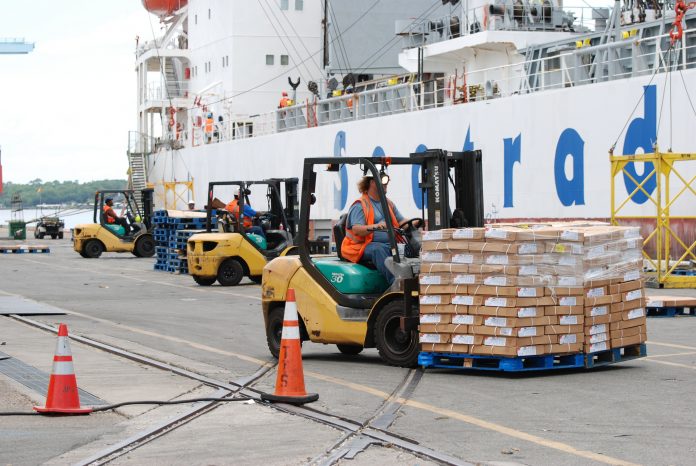Two new studies published today by the European Commission highlight the increasing importance of EU exports for job opportunities in Europe and beyond.
EU exports to the world are more important than ever, supporting 36 million jobs across Europe, two thirds more than in 2000. 14 million of these jobs are held by women. In addition, EU exports to the world generate €2.3 trillion of value added in the EU.
Since the beginning of this Commission in 2014, the number of jobs supported by exports has increased by 3.5 million. These jobs are on average 12% better paid than jobs in the rest of the economy.
“This study makes it crystal clear that trade means jobs. Exports from the EU to the world support the livelihoods of a vast, and increasing, number of citizens in every corner of Europe. Almost 40 percent of those whose jobs are supported by trade are women. EU trade also supports millions of jobs far beyond EU borders, including in developing countries. So here’s even more proof that trade can be a win-win: what’s good for us is also good for our partners around the world,” said Commissioner for Trade Cecilia Malmström.
The report released today, during the EU Trade Policy Day, includes detailed factsheets about the results for every EU Member State. Exports create and support jobs all across the EU, and the numbers are increasing. The highest increases have been seen since 2000 in Bulgaria (+312%), Slovakia (+213%), Portugal (+172%), Lithuania (+153%), Ireland (+147%), Estonia (+147%) and Latvia (+138%).
The figures released today highlight an important positive spillover effect from exports to the world. When EU exporters in one Member State do well, workers in other Member States also benefit. This is because firms providing goods and services along the supply chain also gain when their end-customer sells the final product abroad. To give an example, French exports to the rest of the world support around 627,000 jobs in other EU Member States.
Finally, EU exports to countries around the world support almost 20 million jobs outside the EU. These jobs have more than doubled since 2000. For instance, more than 1 million jobs in the United States are supported by the production of US goods and services that are incorporated into EU exports through global supply chains.
The study looks also into the gender balance, concluding that there are almost 14 million women in jobs supported by trade in the EU.
How trade flows affect employment
The European Commission identified trade policy as a core component of the European Union’s 2020 Strategy. Given the fast changing global economy landscape it is more important than ever to fully understand how trade flows affect employment. This can only be done by gathering comprehensive, reliable and comparable information and analysis to support evidence-based policymaking.
Guided by that objective, the European Commission’s Joint Research Centre (JRC) and the Commission’s Directorate General for Trade have collaborated to produce a publication that aims to be a valuable tool for trade policymakers and researcher.
Following up the first edition of 2015, the report features a series of indicators to illustrate in detail the relationship between trade and employment for the EU as a whole and for each EU Member State using the new World Input-Output Database for the year 2016 as the main data source. This information has been complemented with data on employment by age, skill and gender. All the indicators relate to the EU exports to the rest of the world to reflect the scope of EU trade policymaking.

